Olakunle Martini Akande answers our questions about his work and role in Nollywood. Working as a finishing editor for AfricaMagic’s Venge (TV show) and an editor for Taiwo Egunjobi’s feature film, In Ibadan, one of the 24-film selection at the Film Rats’ Annual Film Mischief, a festival that celebrates quality indie films; as well as an editor for the documentary, Road2Blow which was selected and nominated at the 2021 Africa International Film Festival (AFRIFF). Olakunle Martini, in this interview, Martini discusses his experience as an editor in an industry that is gradually coming to appreciate the important creative process of selecting and combining shots to tell a story.
How is the editor’s role perceived in Nollywood? To be honest, for the large part, things are changing but before now, a lot of editors were just viewed as technicians.
1. Getting to Know Olakunle Martini Akande
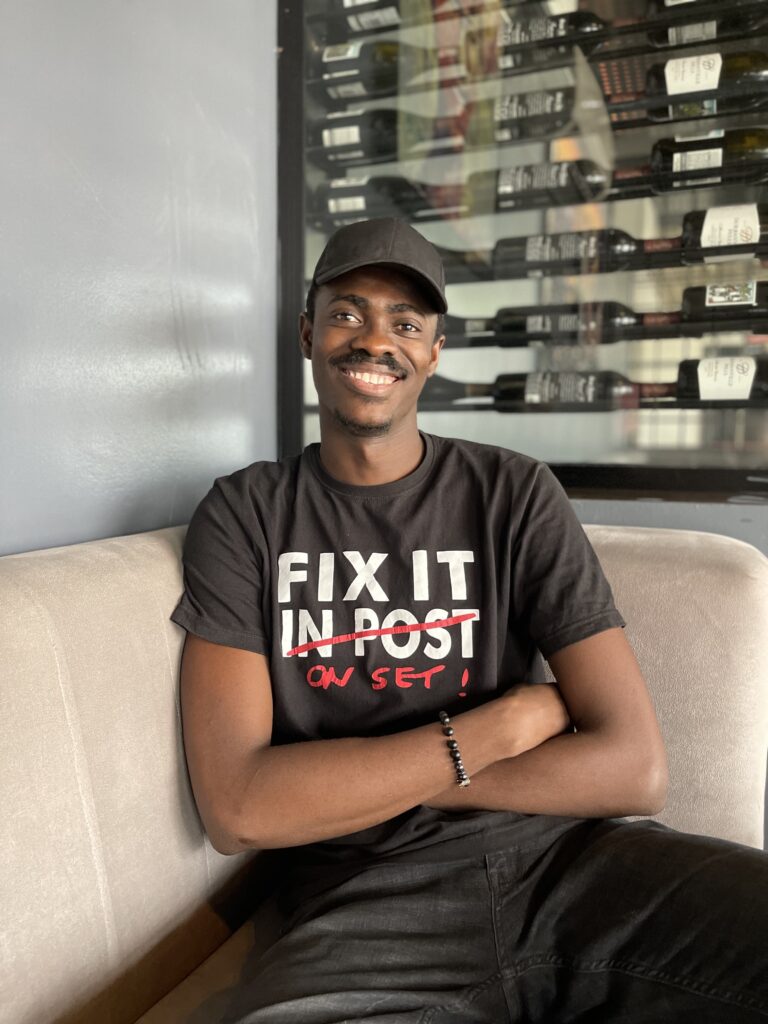
a. Thank you for agreeing to this interview. For those who do not know, who are you? Who is Olakunle Martini Akande?
Martini is a filmmaker, a film editor, a producer, though I specialize majorly in post-production. I produce when I have to, but to give you a very short answer: Martini is a storyteller, and I believe in telling relatable African stories, that are about the human condition, stories that are meaningful. I know that’s relative, but stories that are meaningful, stories that people can take something away from. To just make it short, Martini is a storyteller.
b. How would you describe your work as a film editor to a 5-year-old?
I would simply put it as film editing is basically a selection of the best shots that tells the story of a scene in the best way possible. It’s also the combination of shots that tells the story that a scene is trying to tell in the best way possible—that’s film editing. That’s the very simple definition of film editing. So note that I said selection, because a lot of people think editing is knowing how to use a software, maybe DaVinci, Premiere Pro. No, that’s just a technical part. Film editing is more of storytelling than knowing how to use a software. Of course, you have to know how to use a software, but the process of editing is not actually when you are operating the software, it is when you are making those decisions; that this is the right shot for this, this is the right shot to use for this, this is what I should cut to; that is what editing is actually, it is selection.
c. You do it all; feature films, shorts, trailers, documentaries, and commercials, what made you decide to become an editor and how long have you been doing it for?
Yeah, I became an editor because I could not afford an editor. *laughs* That’s just the simple answer. Myself and my friends, we wanted to start making films, so when we shoot these films, we give it to an editor, the editor would take months to edit it and when it comes out, we don’t really like what we see. So, we just decided that hey, why can’t we just learn how to edit this thing ourselves. So I started editing because I wanted to tell stories, and the rest is history. Professionally, I have been editing for five years. Before then I had been doing some editing but professionally, let me say five years.
2. Experience in Nollywood and as An Editor
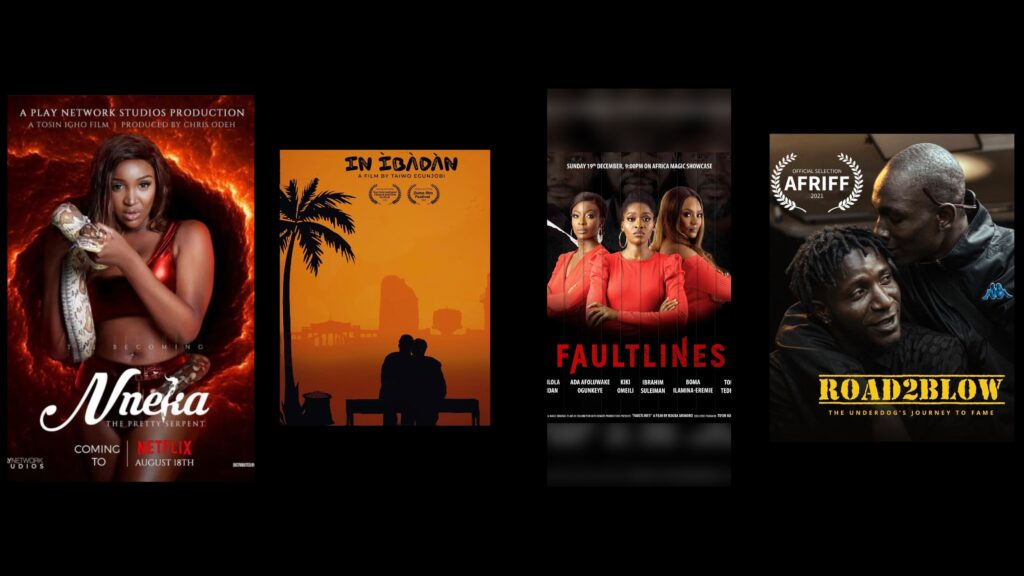
a. What are the Nollywood projects you have worked on so far?
I mean, the most popular of them is Nneka the Pretty Serpent, which is now on Netflix; it went to cinemas before Netflix. I have worked on Faultlines, an AfricaMagic original film currently showing on Showmax and was on Showcase late last year. There are other projects in the works: a romantic comedy titled, A Romantic Comedy Featuring Lara and Tobi, that is the title. Don’t mind the director; there is a documentary—Road2Blow— that was screened at AFRIFF recently and is coming to one of the streaming platforms very soon. I am currently the finishing editor on Venge, an AfricaMagic original 260-episode TV series. I have other projects in the works that I don’t have the permission to mention now. Those are the ones that I can remember right now, I hope I didn’t miss any one. Also, I edited a short film for Taiwo Egunjobi; Crushed Roses, it’s coming out soon. I edited a feature film for Taiwo Egunjobi too in 2020, titled In Ibadan. I hope I mentioned everything.
b. Which one is your favourite based on the work you put into it. Any special babies?
Any babies? You will not put me in trouble, *laughs*, special babies. Well, I mean, it’s only if I want to lie. Every creative will have particular projects that they really like more than others for different reasons. Some are based on the working relationship with the client, while some are based on the story. But most times for me it’s the story. So, I do have my favourites though, but what I will say is I have never worked on a project that I do not like. Even if I don’t like the beginning, there will always be something that I like about that story, so I will concentrate on the things that I really like about it and you know, put that energy into it because you cannot really work on something if you don’t care about it. So, I bring myself to a place where I at least see the good part of it even if I don’t like some other part of it. There are some projects where you like the whole part of it, there are some that it’s just; “Ee-ee. I like this part, I like that part”. That said, I do have my babies but I think, generally, I like almost everything that I have worked on.
c. How was your experience entering Nollywood as an editor? Any difficulties or surprises or like ‘cultural shocks’?
Well, I came from making short films and putting it out there: editing short films and making noise about it on social media, tagging directors and all that, “Yeah I did this, I did that”, applying for jobs here and there. So that’s how I came into editing, just by making films with my friends. You know, making films so that I can have a CV *laughs*. Nobody is going to give you a job as an editor if they don’t see something you’ve done before. So now, who is going to give you something to do, for you to show somebody that you’ve done something. For that reason, you just have to go and do your own thing. I mean, that was how I came in. I just had to make films with my friends so I can have a CV; by building my own CV myself. Talking about cultural shocks, well, I learnt editing by reading Hollywood books on editing, by listening to podcasts, watching YouTube, so I will say my theoretical knowledge came from what I saw in Hollywood. So in my head, I thought editors just you know, edited films, which is what it is actually. But in Nollywood, the producers expect you to be able to do sound, know how to colour, know how to do VFX. In fact some funny people, once you tell them you are an editor, next thing they ask you, “Can you do VFX?” No. The job of the editor is just to edit the picture, not to do colour-grading, not to do sound, not to do any other thing, just edit the film, that’s the job of the editor. Except in documentaries where the editors sometimes have to put temporary sound. So, those are the shocks that I got coming into Nollywood.
d. How did it feel like editing Nneka the Pretty Serpent, with it going on Netflix and all the attention attached to it?
Well, Nneka the Pretty Serpent, December 2020. Yeah, that was my biggest project at the time. It was the biggest thing I had worked on at that time. I mean 2020 is two years ago now, or will be two years in December 2022, but yeah, it’s over a year ago. Working on it was a good experience that was a huge boost to my career. If you want to dream big, getting on big projects puts you in the spotlight. It makes people more aware that this person exists. It was a career leap that came at the right time. It was a thing of joy because I was happy to finally edit my own cinema film. As much as I have some other projects in the pipeline that are coming to the cinema, but that was my first one, so yeah, it was a surreal experience, it was great.
e. What are the challenges you currently face as an editor in the industry?
The challenges I face as an editor in the industry, well, they are not particular to me or to an editor. I always say the issues of Nollywood is a subset of the issues of Nigeria so it’s the same things almost everybody faces in Nigeria which is, basic things like electricity. Basic things that just make your life easy as a human being. The problems I face are not different from the problems every other creative in every other space has. Specifically as an editor, it would be timelines and attention to story. Sometimes we have films where there wasn’t enough time spent on the story. All these still track back to everything being a subset of the Nigerian problem because a lot of times there is no money to develop stories well; there is no money to hire the right personnel. In film, everything you’ve done ends up on the table of the editor— all the rushed work that you have done because you don’t have money ends up on the table of the editor and the editor is left to just make this thing work. I’ve had producers and directors tell me, “just make this thing work”, because they know how much error, they know how much they have strayed from their original vision due to lack of resources, so when it gets to the editor, they just say just make it work. Some have contracts that they have signed and they just need the editor to come through for them and make it work. Yeah, like I said, my problems are a subset of the general problems of working in Nigeria.
f. Creative freedom: How creative can you get with your work or is there usually a particular demand already placed by the producers/directors, or an already expected output?
On creative freedom, I think it comes with how much the producer or the director understands what you bring in as an editor. I always say producers and directors really need to see bad editing before they understand what good editing is. So, a producer that knows what an editor brings to the table will allow the editor some creative freedom. But for some, they see the editor as a technician who is just joining the film together. People like that just come in there and they edit the film themselves— they are basically giving the editor commands, “put this here, put this there”. So yeah, there are projects like that where the editor is not able to express his own ideas and bring his own ideas into the film. I will say I have been lucky to only work with directors and producers that trust me to elevate whatever material I have in front of me, but it happens that some don’t, but, for me, I will say I have been fortunate enough to work with those who trust me with their babies.
g. Editors play a huge part in the final work that we see on screen. Even in Hollywood, there was a recent backlash that followed the Academy’s decision to cut the Oscars Best Film Editing award, amongst some others, from the main telecast. There has been an outcry on how the role might just be underappreciated. How is the editor role perceived in Nollywood, how well are you appreciated?
So, this also ties back into what I said earlier, how much is the editor’s role? How is the editor’s role perceived in Nollywood? To be honest, for the large part, things are changing but before now, a lot of editors were just viewed as technicians. Just you know, a lot of people are not rated, let me start from that. It’s not just editors, everybody in the value chain is not given the right seriousness, not to say too much. But let me just say, a lot of editors are not, and it’s because a lot of producers and directors do not understand what the editor brings to the table. So it is even hard for you to appreciate someone whose work you don’t fully understand; you don’t know what they add to the film, so you don’t even know how to appreciate them. I mean though, in recent times, things have been changing. Like I always say, it also depends on who your clients are. For most of Nollywood, I don’t think editors are valued that much, which is funny, because when their film doesn’t go well, they think the editor didn’t edit it well, but when the film is going well, they will not remember the editor—really funny. My conclusion is that the appreciation is low but it is not peculiar to editors.
3. Back to your work and helping readers understand your process
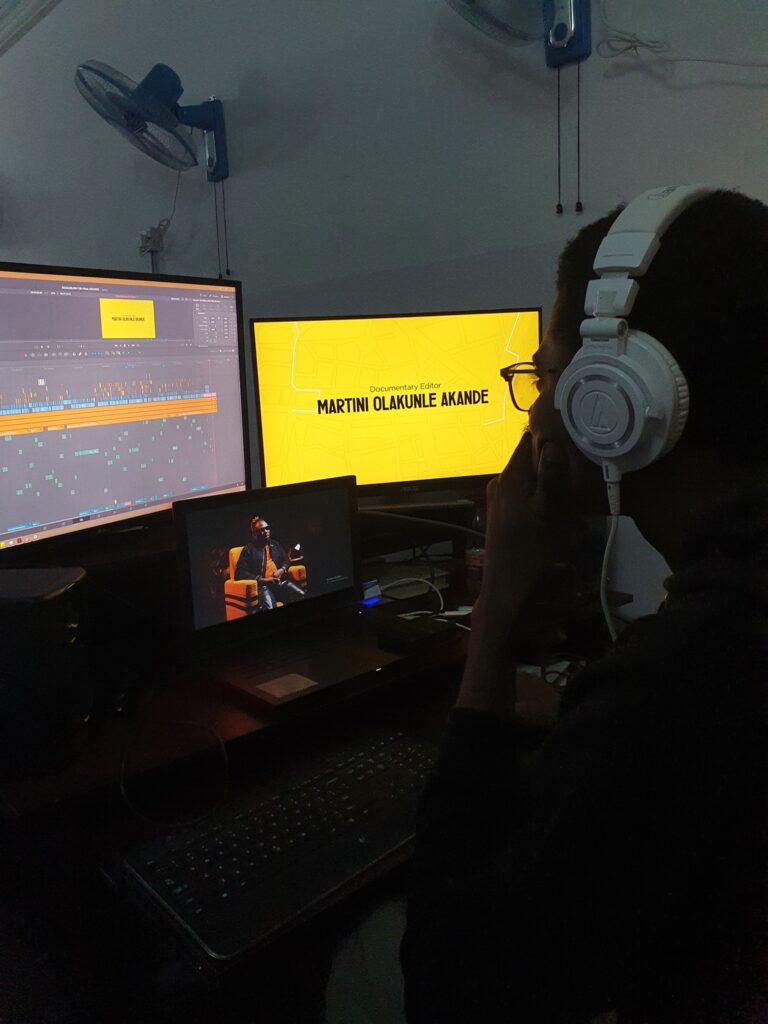
a. You posted on social media about your switch to DaVinci Resolve, is this the only software you currently use or are there other editing softwares you work with?
Yeah, I recently switched to DaVinci Resolve. It is the only one I currently use, but it is not the only one I know how to use. I can still edit with Premiere Pro, I can still work with Final Cut and all that but my go-to application now is DaVinci Resolve and that’s because you can do everything in it. You can do colour grading, your audio post-production, and your editing—basically everything in one software, so it just makes sense to do everything in there. And DaVinci Resolve’s colour grading software is like the industry standard, so there’s no point moving around. You know, editing in Premiere Pro then moving it to DaVinci for colour grading when you can just do the whole thing on DaVinci, so yeah, that was what informed my switch.
b. You are a finishing editor for the AfricaMagic show Venge, what differentiates an editor from a finishing editor?
Alright, so the difference between offline and online editing. Offline editors are the ones who do what we call the first assembly and the rough cut. Let me also say the first cut. That’s what they are supposed to do at the offline stage. It’s at the online phase that visual effects, colour grading, audio work, and score come in. This is also where you go into detail, where you edit in detail, where you adjust for pacing, where you cut for the actor’s performance, and where you make the music fit into the start of a scene. So, it’s where the QC, Quality Control happens. It’s at the online phase that you turn the edited low resolution files into the high resolution files, the original files because, sometimes, the offline editors have to edit with low resolution files and, just because they are probably using a lesser editing machine. So it’s during the online editing that you reconnect those low resolution files to the original high res file. All of these separate online from offline editing. Online is like the final stage of post-production. This is a good point to mention that online editor and finishing editor means the same thing.
c. Editing can quickly become a long and monotonous task that takes many hours of your time each day in front of a screen. What keeps you motivated?
You’re right. Editing can be boring, it can be monotonous, it can be annoying, it can be depressing, depending on the project you’re working on. *laughs*. Basically, I just do things that make me remember why I started, which is the fact that I want to tell stories. I love the romance between sound and visuals, so what I just do is, I go back to watch the films that I like. I go back to watch my Reel, I go back to watch my Hateful Eight, Schindler’s List, Casablanca, Saving Private Ryan *laughs*. I go back to watch La La Land. I’m currently watching Dune, so I just go back to watch the films that I like, and I just remember why I started doing this in the first place.
d. Which aspect of editing, maybe cutting or colouring/ colour-grading, or maybe making montages or reels, do you find particularly exciting or the most fun?
Let me first correct that colour-grading and anything colour is not part of editing, it is another person’s job—a colourist’s job, though I do that. There are editors that colour too, that’s fine, but when they are doing that, they become colourists not editors, so there are film editors that are also film colourists. But colouring is not part of the editing process. But when you’re talking about what I like in the editing process, I think my favourite thing to do is montages. Before I started editing films professionally, I used to do wedding trailers, I used to edit music videos, and short documentaries, so I really really love montages. I like narratives, I like editing things with narration under them, uh, Wolf of Wall Street, GoodFellas, and The Irishman, examples of films with scenes that I like creating, something with a narration going on, then series of a couple of shots, to form a montage.
e. What do you have to see in a project, what potential do you see that makes you decide to take on a project?
Good storytelling. A good script, a lovely script with intentionality, an important story, a relevant story. The story is the first thing for me and of course, the second thing is money. *Laughs*. you need money to fulfill your own dreams too. So I mean, money is the second thing but the first thing is the story, how it appeals to me, and if it piques my interest.
f. You are also a producer. How did you get into that?
Like I said, I started editing because I wanted to make films. So when I was making those films, I was, you know, part of the production process too. Those short films, there were some, where I was the production manager, I was the producer. So that’s how I got into producing.
g. Which other film roles are particularly interesting to you which you might end up taking up in future?
Currently, I edit, I colour, and I produce. I’m not sure because I mean, I am trying to be a master at post-production. So if I would take on something in the future, I think I would want to direct something. That would be it. Right now I’m not pushing for it, but apart from being an executive producer or a producer on something, I think I would want to try out directing in the future.
h. Are we going to see more of you as an actor and a producer?
Yes, oh my God, how did I forget? Yes, I would love to act. Oh yes, I did not mention it. I used to act. I have a few acting roles here and there; I was in Borokini, an AfricaMagic Yoruba TV series. I have acted in a few short films. In fact the first film related thing I did was acting. I have one or two short films on YouTube. I will produce more, definitely. But, I mean, I would like to have a few scenes in films here and there because I think I like acting.
i. Any other future goals and plans? Are there any unreleased works you’ve worked on that we should look forward to?
My future plan is to make my own mark in post-production, as far as Africa is concerned. I would like to set new trends, come up with new post-production workflows or improve on the one we already have. Also, be an employer of labour in the post-production side of things. And for projects to look forward to, there’s A Romantic Comedy Featuring Lara And Tobi, and there is Road2blow. There is one other one that I cannot mention now. It should be out soon too. There are projects and as they keep coming out, I will keep you guys posted.
j. What should others hoping to join the industry as film editors learn/do?
What I would say is, if nobody is giving you an opportunity, it is understandable. Nobody would want to give you a cinema film to go and edit if you have not done something before and I understand that it is hard to have something that you have done before if no one will give you something to do. So the best thing is to leverage on your community. Belong to a community. For me, I leveraged on Film Rats. I leveraged on my friendships to be able to have a CV. I volunteered on projects. I see somebody shooting something, I ask them, “Can I be your BTS guy?” I would shoot their BTS and edit their BTS, so what I will just say is build your own CV. Recruiters want to see effort. Okay, you’ve edited this thing, though it is a small project but they want to see some intentionality to how you approached it no matter how small it is. I think the best way to come in is just to build your own – build your CV, get on projects, do free jobs here and there. At a point, you will not have to do free jobs again, but at the beginning, you may need do a lot of that.
4. What has been keeping you up recently? (movies, TV series, books, music, podcasts) Kindly share some recommendations with us.
I follow Film Editing Pro, a channel on YouTube, a very helpful resource for film editors. There’s another guy on YouTube called This Guy Edits. There’s Studio Binder, they have great video essays. Also on YouTube, Every Frame A Painting.
On Spotify, I follow some podcasts like Inside The Edits, The Art of The Edits, Once Upon A Timeline. And of course, I have my masterclasses that I subscribe for. Also, I have my films that I have watched over and over again. One of the things I did over the last two years was making sure I watch every film that won the Oscars for best editing and best sound editing. So I’ve watched Whiplash over and over again. I’ve watched King Arthur over and over again. Dune by Denis Villeneuve was nominated for best editing and sound so, I mean, I just basically watch films that have gotten accolades for their work on editing. I watch a lot of that so I think I get a lot of motivation from watching those things too.
I also have my books. I think the greatest book on film editing as far as I’m concerned is by Walter Murch, editor of The Godfather, Apocalypse Now, The English Patient. The title is “In The Blink of An Eye”. I go back to that book all the time. That’s one of my greatest resources. Thank you.
If you would like to learn more about Olakunle Martini Akande and his work, check him out on Instagram and Twitter. He would also be glad to answer more questions.
Would you like to gain insight into other (non-acting and non-directing) Nollywood roles, let us know in the comments or interact with us on social media.
The Annual Film Mischief is a hybrid festival celebrating quality low-budget Nollywood films from March 17-20. More interviews with other filmmakers and creatives in the industry and film essays will be published during this period. Register for The Annual Film Mischief here.
Join the conversation on Twitter: #TAFM22

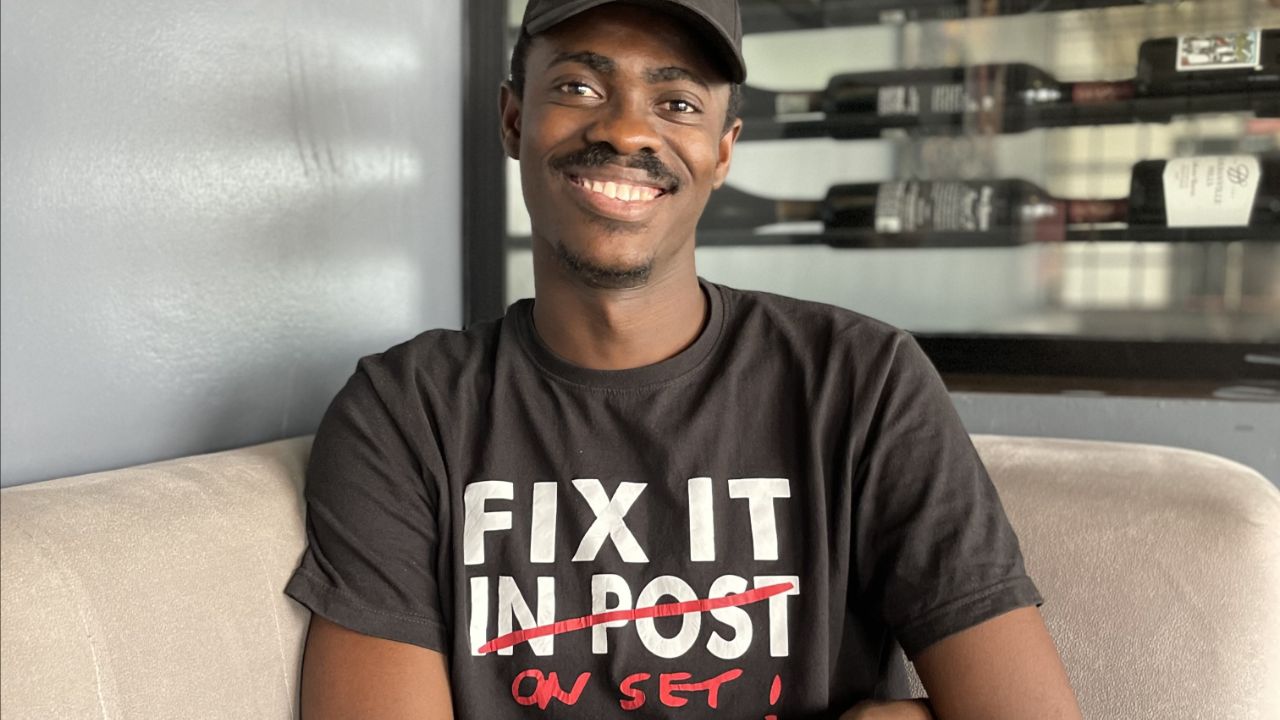
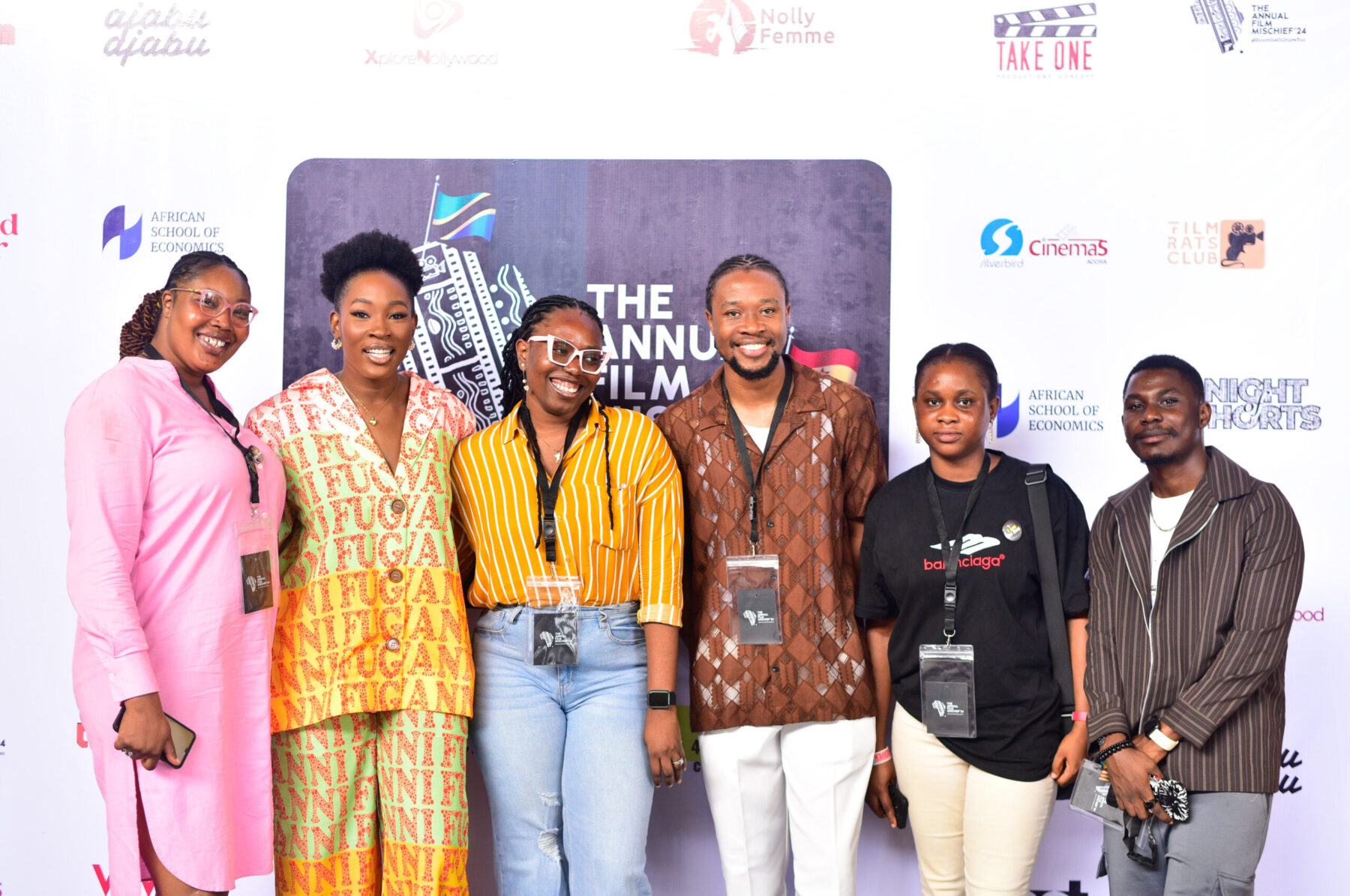
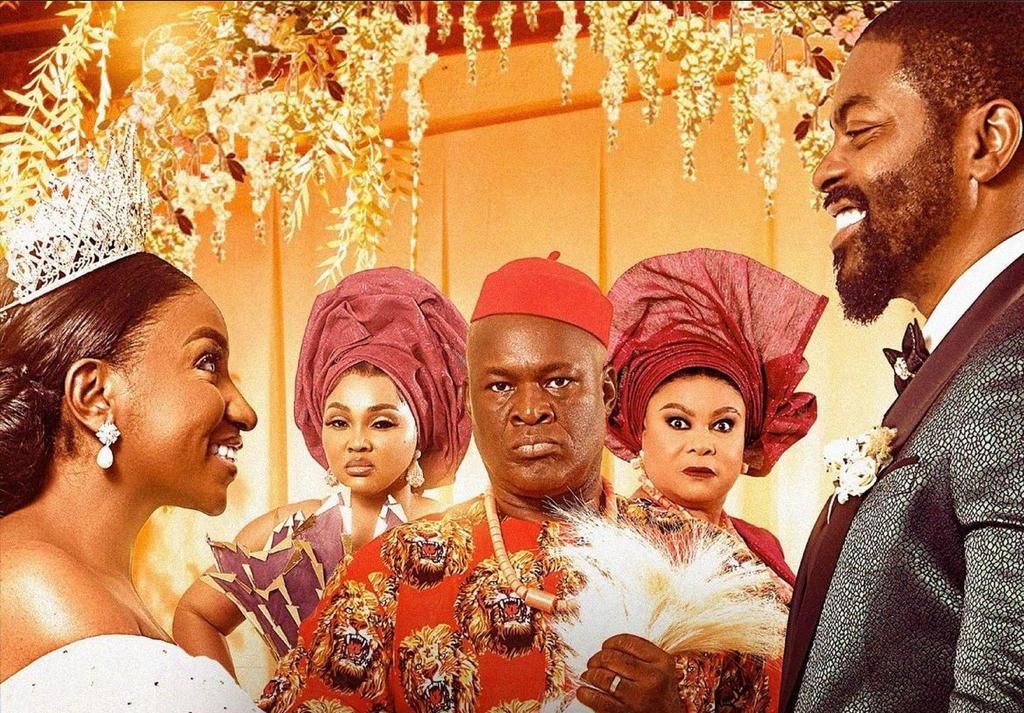


1 Comment